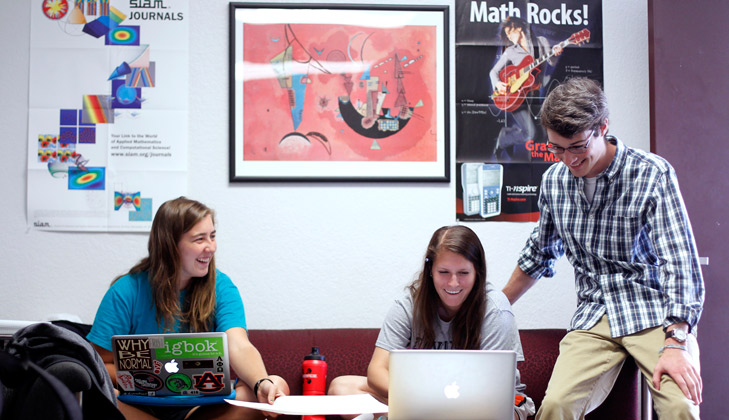For many students, part of the decision to pursue a master’s degree involves answering the question, “How am I going to pay for this?”
While this can be a daunting question for students who do not have financial backing, including those who come from low-income backgrounds, a $1 million grant from the National Science Foundation will help ease that burden for some California State University students, including those at Fresno State, Cal Poly-Pomona and San Francisco State.
Of the $1 million, more than $352,000 will be allotted to Fresno State to provide scholarships for low-income students who are pursuing a master’s degree in mathematics. The program, called Bolstering the Advancement of Masters in Mathematics (BAMM), is a five-year endeavor that will fund two-year scholarships for 10 students. Each student will receive $10,000 per year.
The goal is to support the retention and graduation of students in the program who have demonstrated financial need and academic promise at Fresno State and who plan to later pursue a Ph.D. in the mathematical sciences, including mathematics education.
As of fall 2019, 60% of Fresno State undergraduate students were eligible for a Pell Grant, meaning they come from low- or medium-income households.
Cal Poly-Pomona ($279,000) and San Francisco State ($368,000) also received portions of the $1 million grant to provide student scholarships. Oscar Vega (Fresno State) Kimberly Seashore (San Francisco State) and John Rock and Robin Wilson (Cal Poly-Pomona) are the principal investigators on the project.
“Besides the money, the grant will prepare these students so they survive the transition to a Ph.D. program, and it will also create benchmarks for students in the future who want to follow the path of our scholars,” said Oscar Vega, a Fresno State mathematics professor.
The project will be based on two theories. The first is that providing scholarships will allow students to work fewer hours and allocate sufficient time to dedicate to academic preparation. The second is that structured mentorship and frequent strategic benchmarking will help students to use their time to develop the knowledge base and academic credentials to matriculate to a Ph.D. program. The program’s researchers will measure the effectiveness of each intervention, as well as the entire suite of interventions, to strengthen each student’s intellectual foundation and experience.
The first cohort is scheduled will begin in fall 2020. To apply, visit: http://bit.ly/MastersBAMM.





